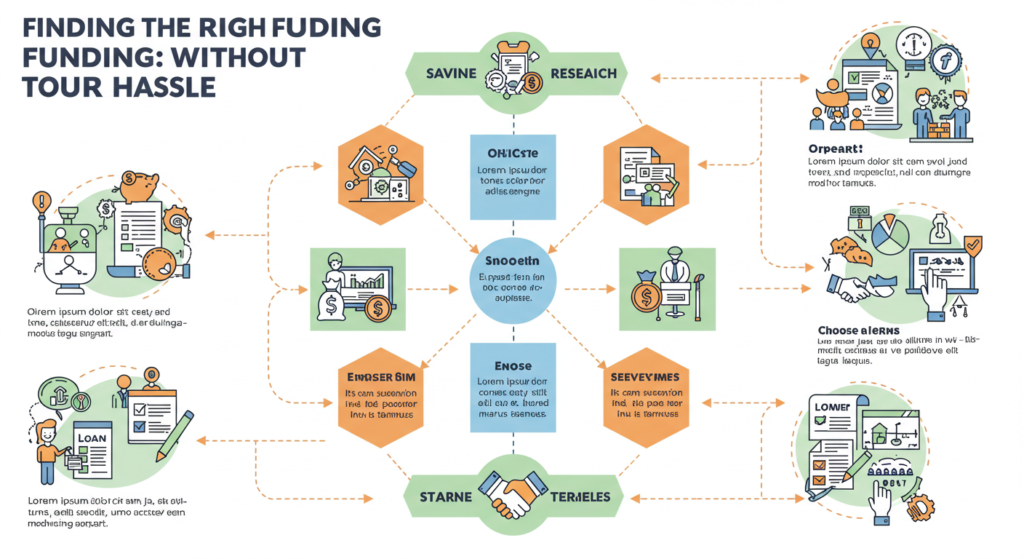Starting a business is exciting, but let’s be honest—it’s also expensive. You’ve got a game-changing idea, but turning it into reality? That takes money. Whether it’s for equipment, inventory, or just keeping the lights on, securing the right loan can be a make-or-break moment for any start-up. But don’t worry, we’ve got you covered.
Why Start-Ups Struggle to Get Loans (And How to Fix That)
Traditional banks aren’t exactly throwing cash at new businesses. They love stability—years of financial records, steady revenue, and solid collateral. A fresh start-up? That’s a gamble.
So, what’s the workaround? Here’s what lenders actually want to see:
- A killer business plan: They need to know you’ve got a solid strategy. No vague ideas—lay it all out, from revenue projections to marketing tactics.
- Good personal credit: If your business hasn’t built credit yet, your personal score will be under the microscope.
- Some skin in the game: Lenders want to see that you’ve invested your own money too.
- Cash flow (or a solid plan to generate it): Even if your business isn’t rolling in profits yet, lenders want proof that it will be soon.
Types of Loans for Start-Ups
The good news? You’ve got options. Here are some of the best loans for start-ups:
1. SBA Loans: The Gold Standard
The Small Business Administration (SBA) doesn’t lend directly, but they back loans from banks, making them less risky for lenders. Popular options include:
- SBA 7(a) Loan – Great for general business expenses, up to $5 million.
- SBA Microloan – Perfect for smaller needs, up to $50,000.
- SBA 504 Loan – Best for purchasing property or equipment.
Yes, SBA loans are competitive, and the paperwork is… a lot. But if you qualify, they offer some of the lowest interest rates out there.
2. Business Credit Cards: A Quick Fix
Think of them as a temporary solution. Business credit cards can help cover short-term costs, and many offer 0% APR intro periods. Just watch out—high interest rates kick in once that period ends.
3. Online Lenders: Fast But Pricey
If you need cash yesterday, online lenders might be your best bet. They move quickly, often approving loans within days. Some well-known ones include:
- Kabbage
- OnDeck
- BlueVine
The downside? Interest rates can be high—sometimes really high. But if speed matters more than cost, it’s an option worth considering.
4. Equipment Financing: Borrowing for the Big Stuff
Need expensive machinery or tech? Equipment financing lets you borrow specifically for those purchases, using the equipment itself as collateral. It’s a solid option if you’re looking to spread costs over time.
5. Business Grants: Free Money (But Hard to Get)
Okay, grants aren’t technically loans, but they’re worth mentioning. Free money is always nice, right? The catch? Competition is fierce, and applications take time. Some places to check:
- Grants.gov
- Small Business Innovation Research (SBIR) program
- Private foundations and industry-specific grants
Avoiding Common Loan Mistakes
Before you sign anything, keep these in mind:
- Read the fine print. Hidden fees and balloon payments can sneak up on you.
- Don’t borrow more than you need. A huge loan sounds great—until you have to pay it back.
- Compare interest rates. A few percentage points might not seem like much, but over time, they add up.
The Bottom Line: What’s the Best Loan for Your Start-Up?
There’s no one-size-fits-all answer. If you’ve got time and a strong application, SBA loans are hard to beat. Need cash ASAP? Online lenders can help. Got a specific expense? Equipment financing or business credit cards might be better.
At the end of the day, the right loan is the one that helps you grow—without drowning you in debt. So, choose wisely, plan ahead, and get ready to turn that start-up dream into reality.






